An heirloom is a wonderful way to preserve family history and pass it down to the following generations. It can be a physical object, like a piece of jewelry or a photo album, as well as something intangible, such as a family legend, song, or recipe. However, they are notoriously known to be problematic to share, often sparking disagreements between relatives.
Recently, redditor Total_Cap_8129 shared her family’s feud concerning her late mother’s heirloom jewelry. Brother’s fiancée of two years suddenly became very interested in it, even though it was promised to SIL’s daughters. Dissatisfied with being ‘left out’ of such a tradition, she pushed even more for it, causing a whole ordeal.
A family heirloom is a great way to preserve family history. However, sharing it is notoriously known to be problematic
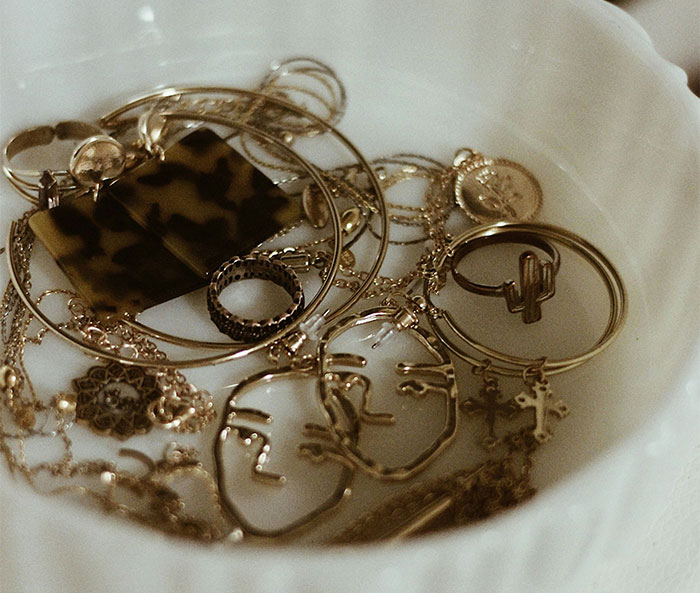
This woman refused to give her mother’s heirloom jewelry to a SIL who never knew her, causing a family feud
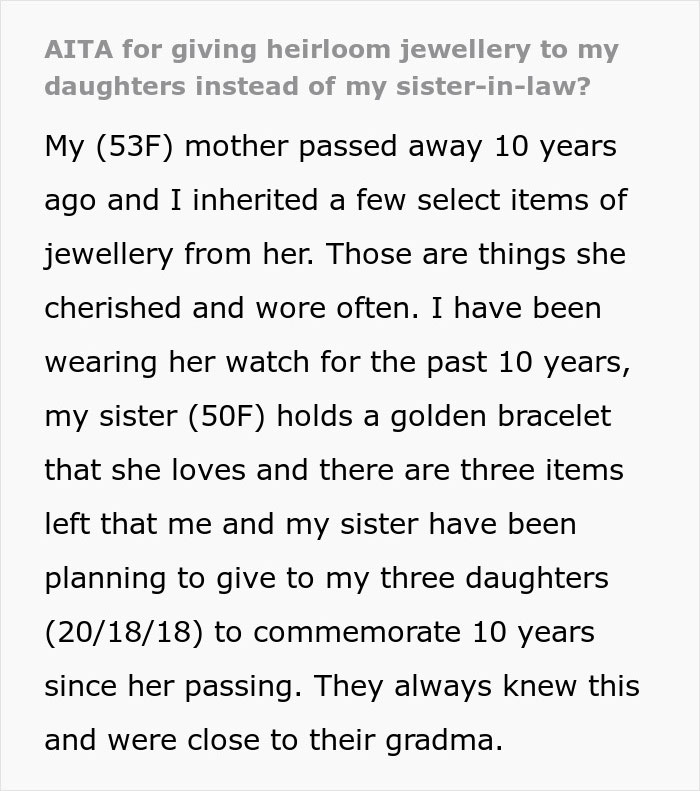
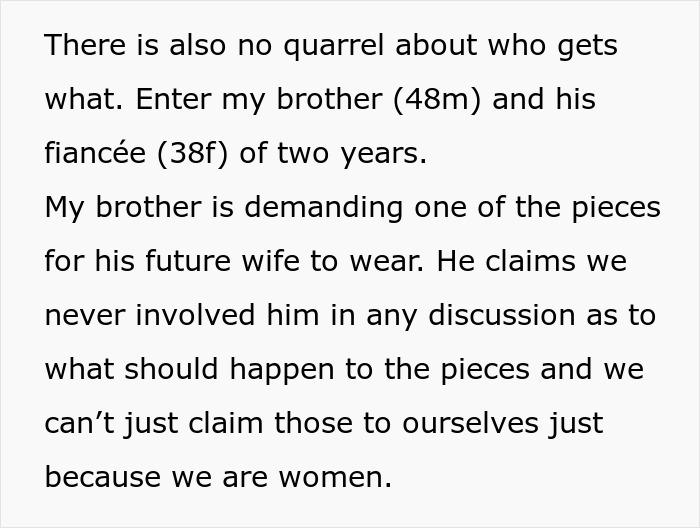
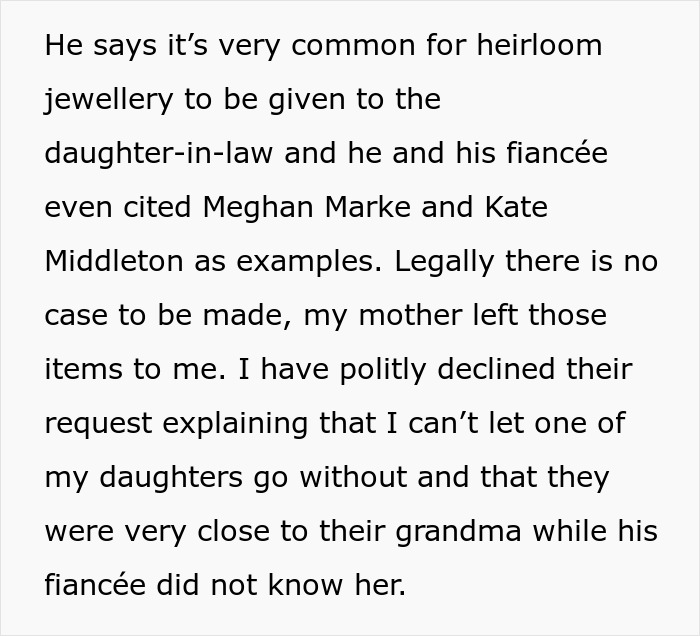
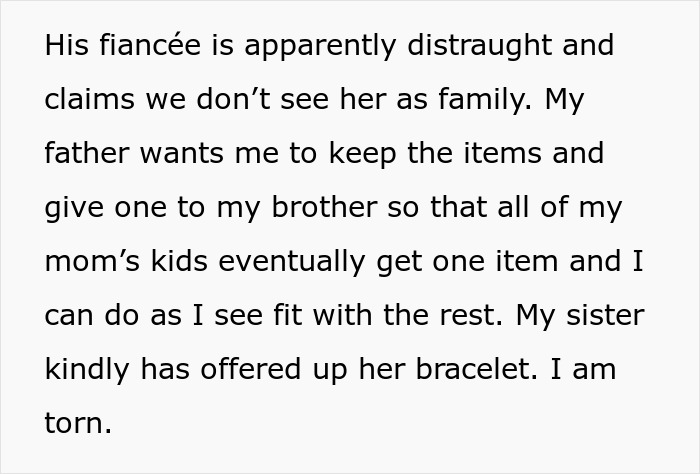

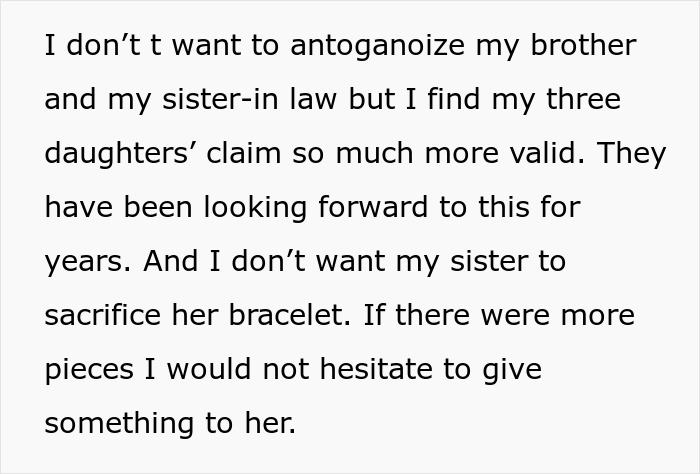
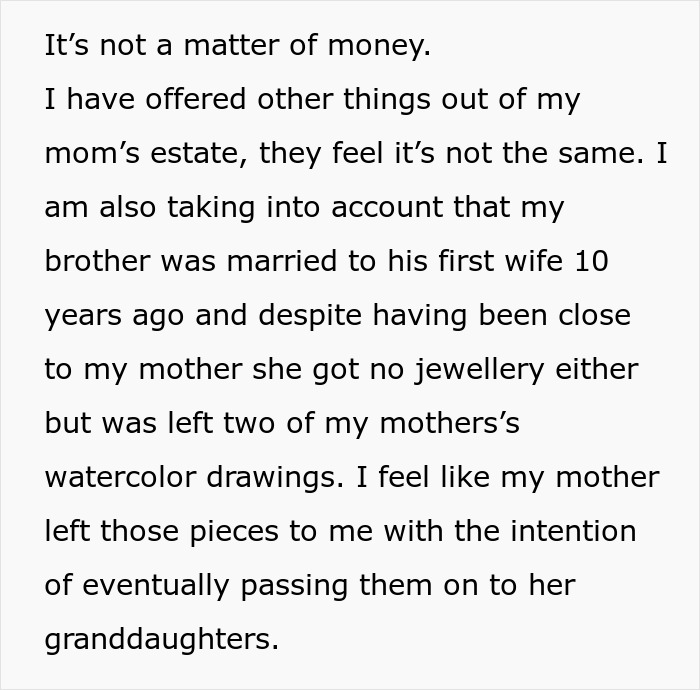

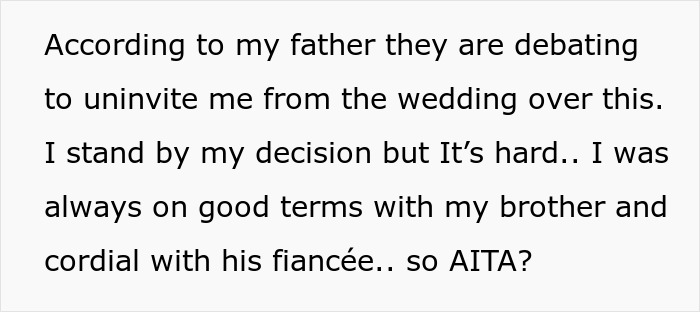
42% of Americans have a family heirloom that’s over 50 years old
Redditor’s experience might be more common than we realize, as 42% of Americans have a family heirloom that’s over 50 years old. Nearly half of them said that such possessions are their most cherished ones.
Evidently, for a lot of people, family heirlooms are more than just physical objects. They have many memories, emotions, and stories attached to them, which makes them invaluable. And when sentiment and monetary value clash, figuring out how to fairly and peacefully divide them becomes even more challenging.
To avoid any injustice, it might be a good idea to separate the two. Some items may hold significant emotional merit but have little financial value, and vice versa. Creating categories and distinguishing them may assist the division process.
For sentimental objects such as handwritten letters or photographs, a more flexible approach may be best. This means allowing family members to express their desire to keep these items in their possession. For the more expensive items, such as antique furniture or valuable jewelry, having them appraised and then distributed accordingly might be the fairest option.
Collaboration and compromise are key in this process, says sudden family wealth attorney Paul E. Deloughery. Ensuring that everyone feels heard and respected can help find a solution that satisfies everyone involved.
One of the best ways to avoid any relative disagreements about family heirlooms is to give them away during one’s lifetime
Despite the best efforts, relative conflicts may still arise. If the person who’s passing down family heirlooms doesn’t want that to happen, they may want to consider specifying their will beforehand. For this purpose, they can create a list of objects, assign names to each of them, and share it during a family gathering when they’re still alive. Later, this record could be incorporated into their trust, making it official legally.
Arguably, one of the best ways to avoid any quarrels is to give away these special items during one’s lifetime. Doing this allows for even more connection with their loved ones, and they probably won’t be as keen on arguing about the distribution. Telling the object’s story, where it came from, what significance it holds, and why you’re passing it on to a specific person may be the most valuable asset an individual can leave behind.
However, it’s worth noting that, ultimately, you can’t make everyone happy. The final decision is the owner’s to make, and the family should respect their choices. Explaining the reasoning behind the distribution might diffuse the situation and resolve any bad feelings that come with it.
“It’s important to address these issues with empathy and understanding,” once again recommends Deloughery. “Remind family members of the shared goal of finding a fair and peaceful solution. Encourage them to focus on the emotional significance of the heirlooms and the preservation of family unity. If tensions escalate, consider involving a neutral third party, such as a mediator or estate planner, to facilitate discussions and provide objective guidance.”
The author jumped to the comments to provide more information on the situation
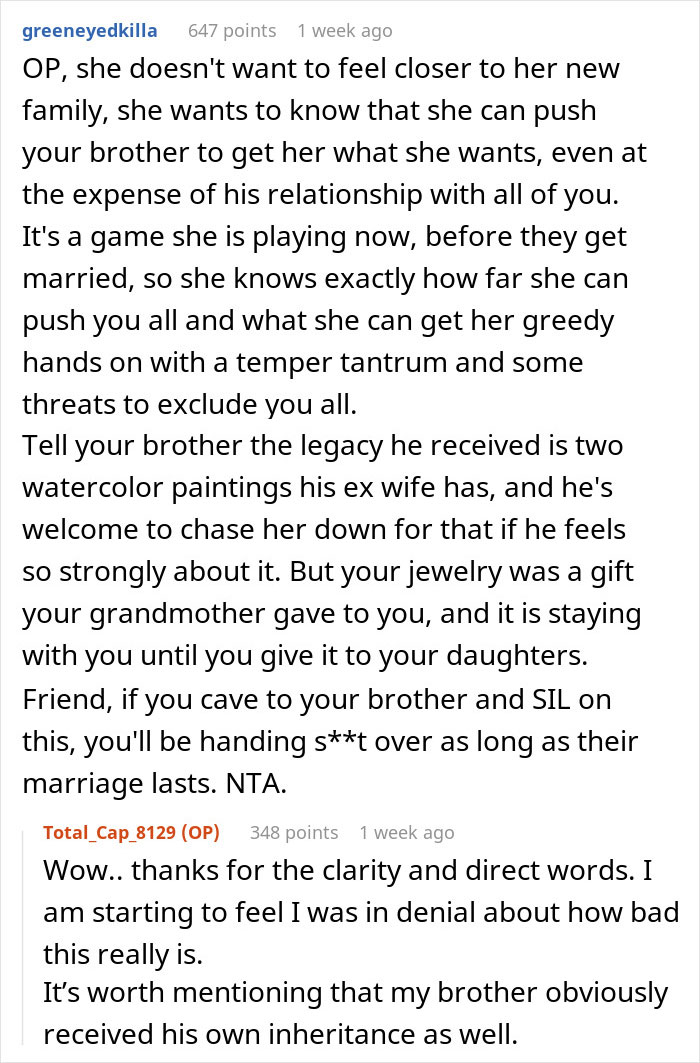
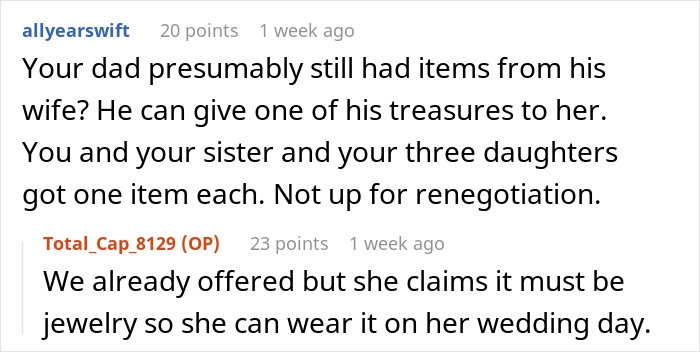

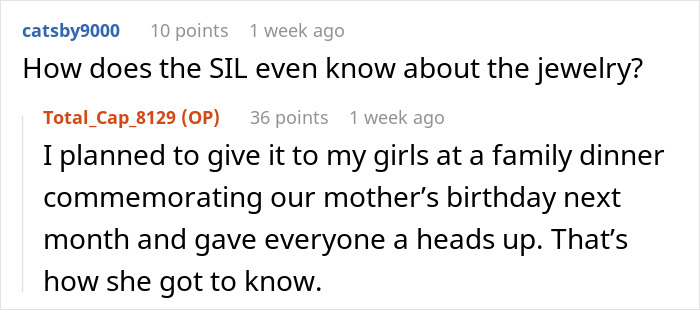
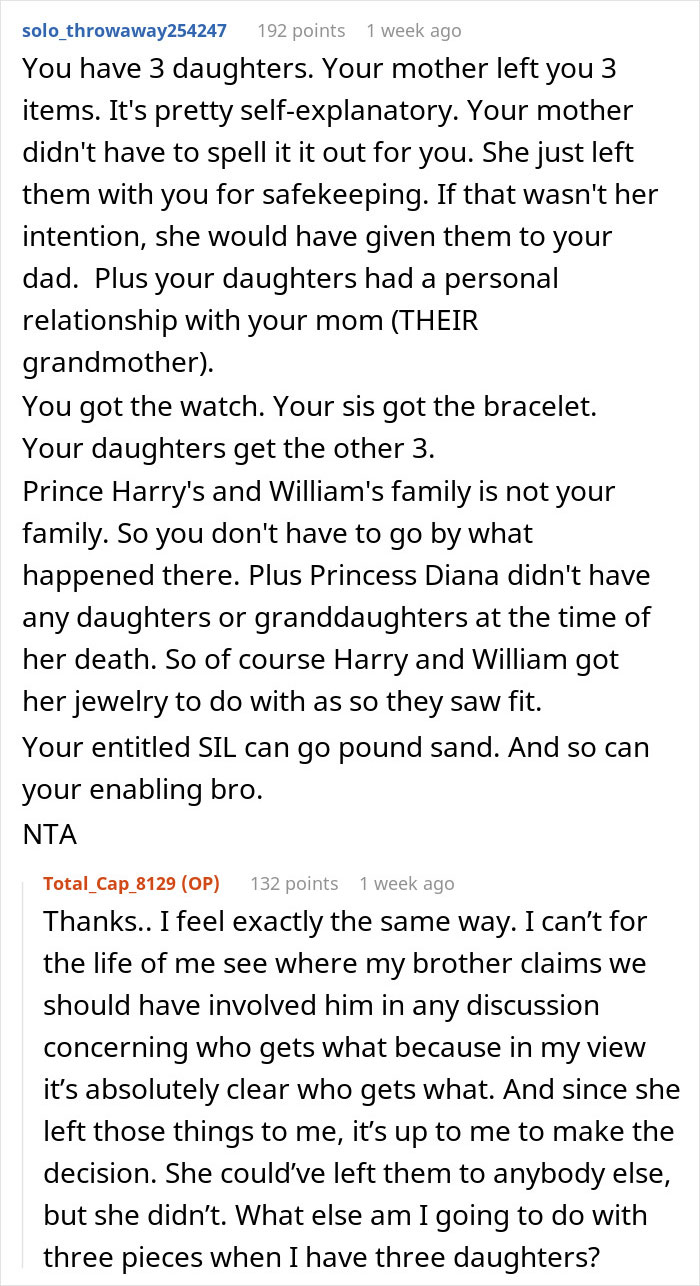

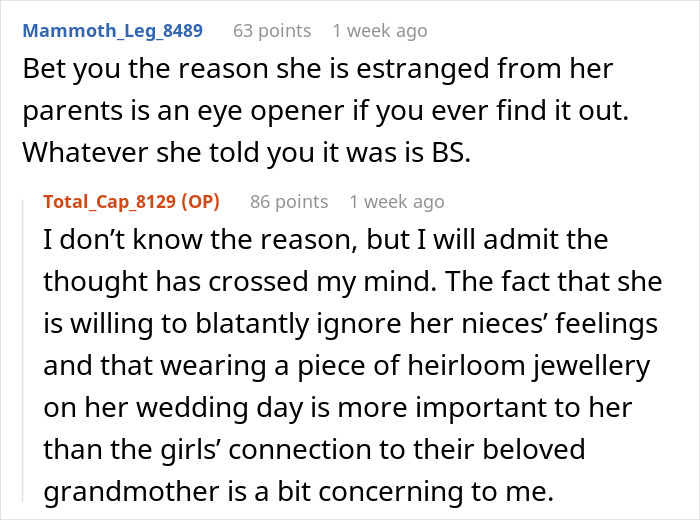


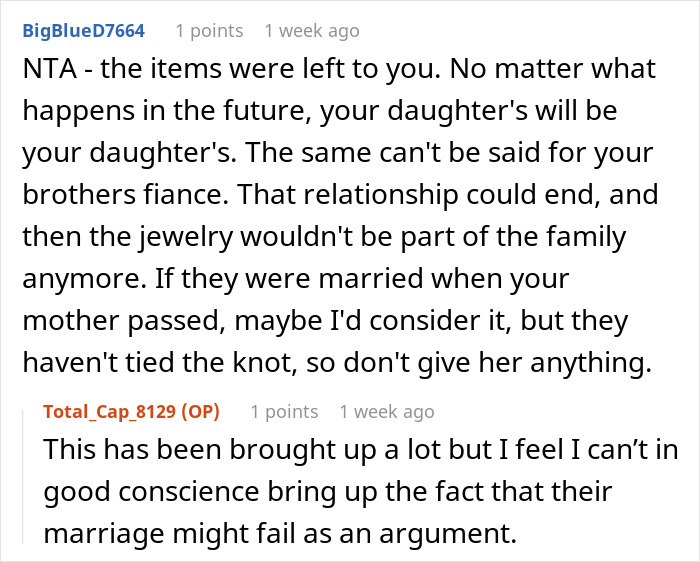
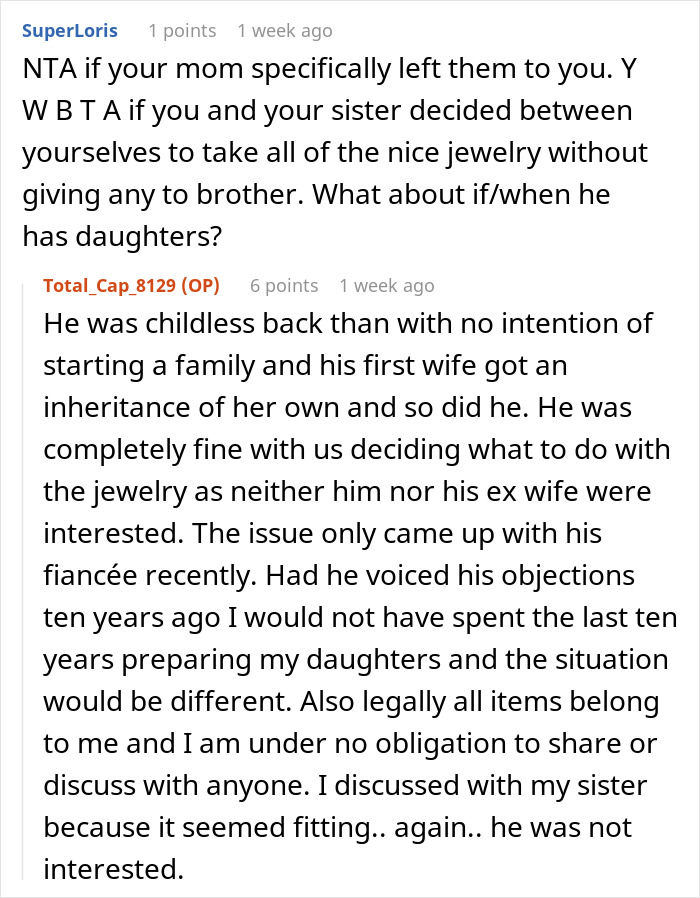

Later, she also posted an update

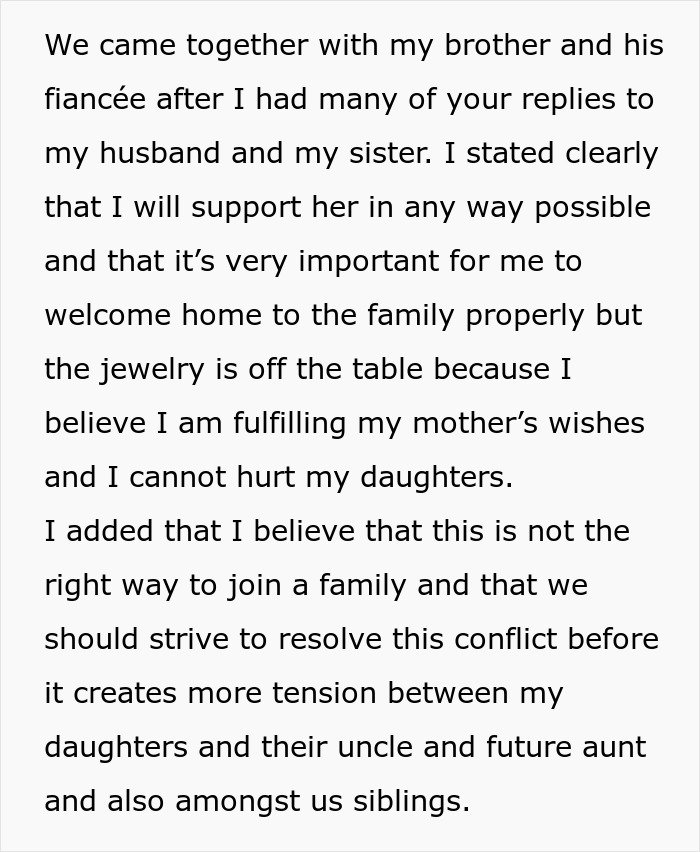
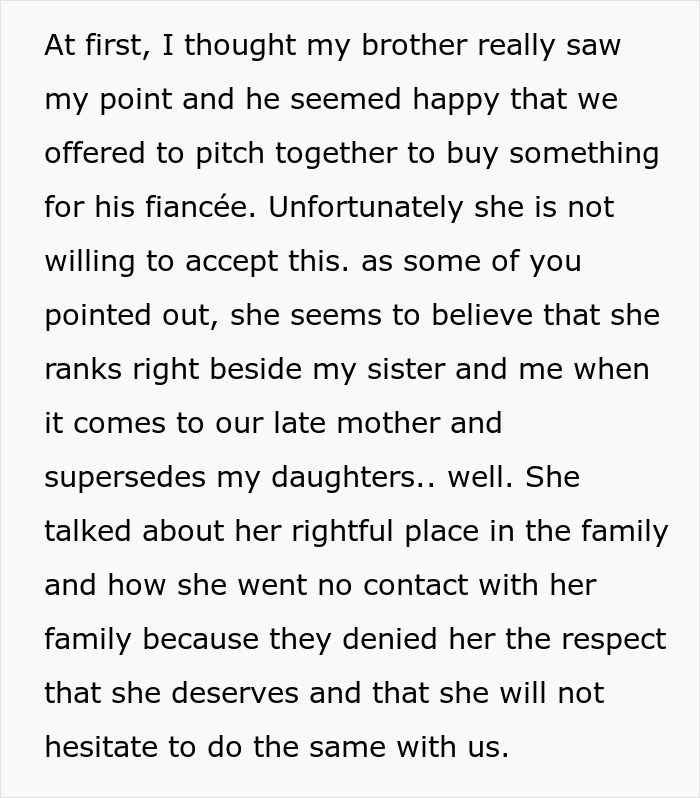
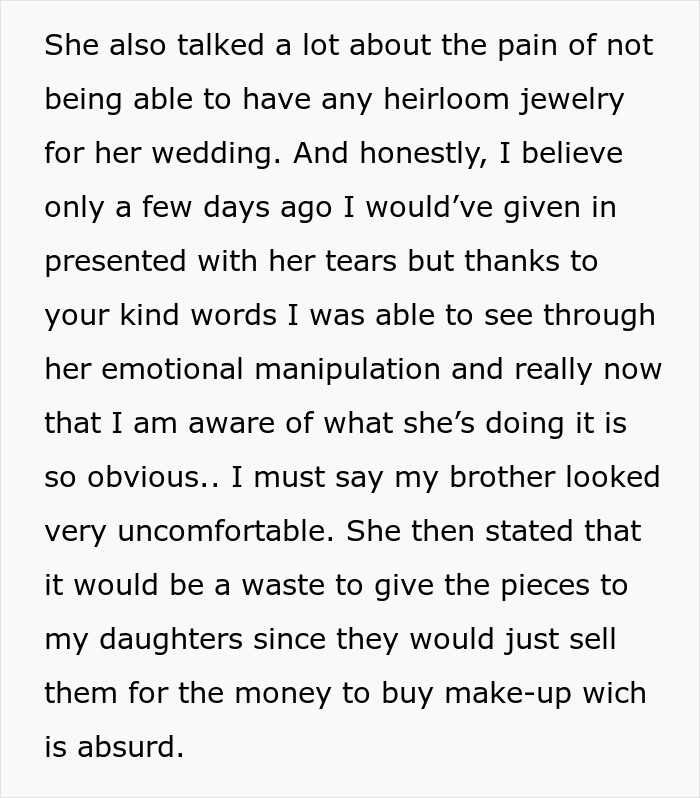


After the update, readers expresses their support for the author
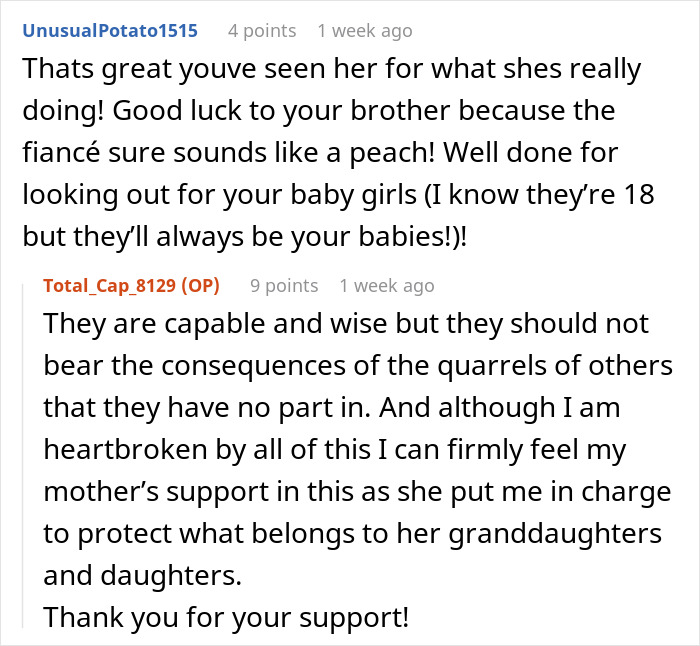





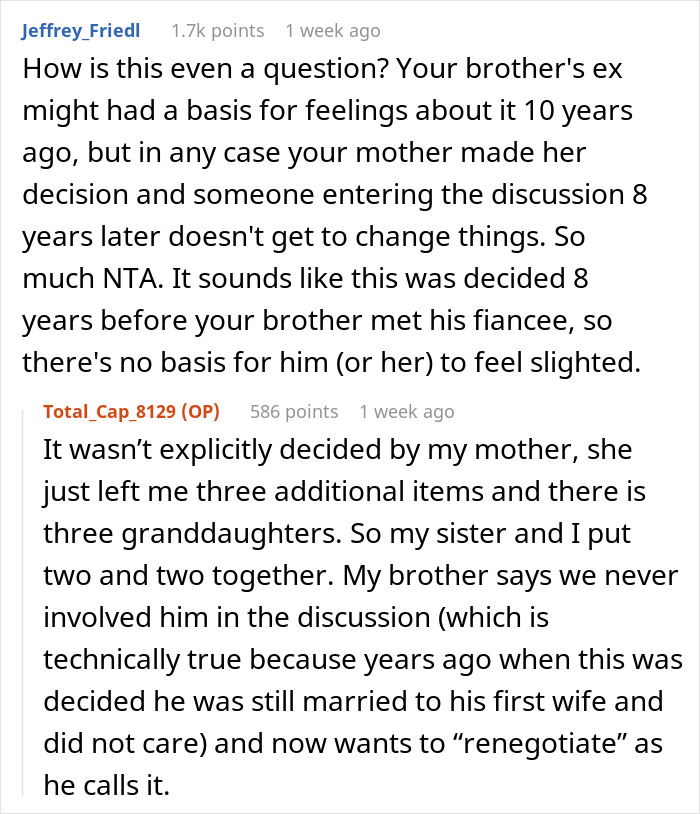
Grateful for every comment, the author hopes that everything will be alright








